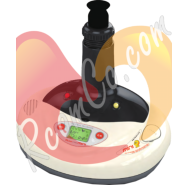

Rcom incubator, hatcher and ICU brooder official authorized North America sales & service

© Copyright 2010 to 2018. Copyright and Trademarks: Visitors, web surfers and customers of our website are bound to accept our copyright,
trademarks, and registrations without limitations. No company, entity, website, or individual is permitted to use any part of this website’s images,
materials, codes, testimonials, product descriptions, or reviews for any of the following purposes without a written and legally notarized permission from
our company: gaining from advertisement or marketing for any of our products; or using our product information or materials to market to other
companies; or for search engines to place advertisements on another website. Violation of our copyright carries liability to compensate us for all actual
and potential damages, losses, and violations. All rights are reserved.
= XML Sitemap Google Feed
Rcom Recommendations for bird and poultry eggs hatching best
practices
The most important thing in incubation is disinfecting the eggs and incubator. You certainly must wash your hands with soap not only when you examine the eggs but also when you just touch the eggs. Hand washing is an important habit to prevent the spread of bacteria, parasites, and viruses. Cleanliness of eggs, egg-handling, and the incubator will improve the hatching results. Before you place your eggs in the incubator, make sure to disinfect the incubator and eggs. Sterilizing the eggs is very important in the incubation process. When you choose the eggs, remember that deformed, dirty, or broken eggs are not good for hatching. Also avoid rough or small eggs. An egg that is covered with soil spreads bacteria. It is better to select clean eggs. If your egg is cracked, it cannot be hatched even if the fissure is tiny. Bacteria will enter through the fissure and the egg will rot. Cleanliness of the incubator is essential. Specialists always clean the incubator completely every time before they start to incubate. You should clean and sterilize the incubator every time before and after you hatch the eggs. There are two kind of eggs -- fertilized eggs and unfertilized eggs. Unfertilized eggs cannot be hatched. Be sure you attempt to hatch fertilized eggs from hens raised with roosters. Use eggs within a week of laying. Be sure to clean your hands before you inspect the eggs. Do not spend more than 10 minutes on egg inspection and egg handling. . Noise can influence the hatching results. It is better to place your incubator away from loud noises. For example, do not place the incubator near a washing machine. It is better to place the incubator in a quiet room away from crowds.
Current Visitors:



Rcom egg incubator, Rcom hatcher and Rcom brooder for birds, & reptiles & pets or puppies Rcom ICU brooder

© Copyright 2010 to 2018. Copyright and Trademarks: Visitors, web surfers and
customers of our website are bound to accept our copyright, trademarks, and
registrations without limitations. No company, entity, website, or individual is permitted to
use any part of this website’s images, materials, codes, testimonials, product
descriptions, or reviews for any of the following purposes without a written and legally
notarized permission from our company: gaining from advertisement or marketing for
any of our products; or using our product information or materials to market to other
companies; or for search engines to place advertisements on another website. Violation
of our copyright carries liability to compensate us for all actual and potential damages,
losses, and violations. All rights are reserved = XML Sitemap Google Feed
Rcom Recommendations for bird
and poultry eggs hatching best
practices
The most important thing in incubation is disinfecting the eggs and incubator. You certainly must wash your hands with soap not only when you examine the eggs but also when you just touch the eggs. Hand washing is an important habit to prevent the spread of bacteria, parasites, and viruses. Cleanliness of eggs, egg-handling, and the incubator will improve the hatching results. Before you place your eggs in the incubator, make sure to disinfect the incubator and eggs. Sterilizing the eggs is very important in the incubation process. When you choose the eggs, remember that deformed, dirty, or broken eggs are not good for hatching. Also avoid rough or small eggs. An egg that is covered with soil spreads bacteria. It is better to select clean eggs. If your egg is cracked, it cannot be hatched even if the fissure is tiny. Bacteria will enter through the fissure and the egg will rot. Cleanliness of the incubator is essential. Specialists always clean the incubator completely every time before they start to incubate. You should clean and sterilize the incubator every time before and after you hatch the eggs. There are two kind of eggs -- fertilized eggs and unfertilized eggs. Unfertilized eggs cannot be hatched. Be sure you attempt to hatch fertilized eggs from hens raised with roosters. Use eggs within a week of laying. Be sure to clean your hands before you inspect the eggs. Do not spend more than 10 minutes on egg inspection and egg handling. . Noise can influence the hatching results. It is better to place your incubator away from loud noises. For example, do not place the incubator near a washing machine. It is better to place the incubator in a quiet room away from crowds.
Current Visitors:





















